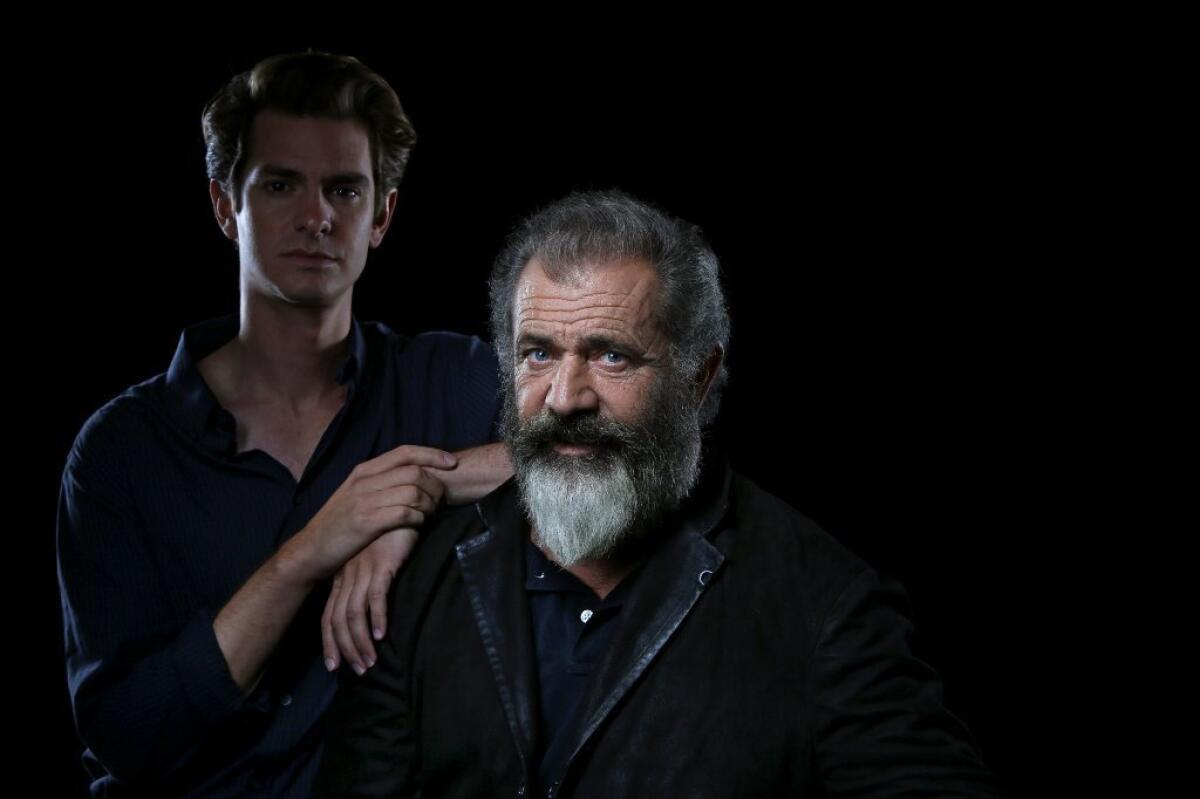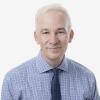Why does director Mel Gibson see ‘Hacksaw Ridge’ as a love story?

Producer Bill Mechanic tried to convince Mel Gibson to make “Hacksaw Ridge” in 2002, when Gibson was still at the height of his career, and again in 2010, four years after the Oscar-winning director and star had been all but exiled for anti-Semitic comments made during a drunk-driving arrest in Malibu.
Gibson says something about the story of Desmond Doss, a conscientious objector awarded the Medal of Honor for bravery in combat as a medic during World War II, finally clicked for him when Mechanic reached out a third time in 2014. Gibson took a fresh look at Doss and saw a man who transcended the horrors of war, tending to both American and Japanese soldiers alike without regard for his own safety. He saw Doss as an example of “what we’re capable of in our venality, that we have a higher self.”
“What he did was the greatest act of love there is,” Gibson says. “That’s why I call this movie a love story, not a war story.”
We spoke recently to Gibson and actor Andrew Garfield, who plays Doss, about their collaboration on “Hacksaw Ridge,” which has earned Golden Globe nominations for picture, director and lead actor, along with a SAG Award nod for Garfield.

“Hacksaw Ridge” features Teresa Palmer, Andrew Garfield, Hugo Weaving, Sam Worthington and Vince Vaughn.
What struck me in reading about Desmond Doss is that you actually underplayed what he did during the Battle of Okinawa. We watch him saving one wounded man after another, tirelessly lowering them down the cliff on the rope-supported stretcher. But we see only a dozen or so. Accounts put the actual number between 50 and 100.
Gibson: Right. You show all that, there wouldn’t be time for anything else in the movie. We underplayed a few things that you see in the documentary [2004’s “The Conscientious Objector]. After he stepped on a hand grenade and got all blown up, he was being transported and he jumped off his stretcher to treat another guy who he thought was worse off than him. He gave the guy the stretcher and then crawled back and got shot up some more. If you put that in a movie, it gets Pythonesque.
It’s the Black Knight from “The Holy Grail.”
Garfield: Right. You don’t want to make him a cartoon or a saint. He was a man who didn’t want to be called a hero, though his actions are impossible to label as anything but heroic. I think for both of us, the question was: How do we tell the story of a truly sincere, humble man, flesh and blood like every one of us, who transcended the violence inside himself? How did he sublimate all that energy and rage into light?

Andrew Garfield talks about Desmond Doss, the conscientious objector he portrays in “Hacksaw Ridge.”
And what answers did you find?
Garfield: He was a deeply spiritual man. He had a real certainty about what he believed.
Gibson: You couldn’t box him in. He hated being called a conscientious objector. He called himself a conscientious collaborator.
Garfield: He created his own category. And the Army fought him. The value system of the culture called him crazy. The people who stay true to themselves, like Martin Luther King and Mahatma Gandhi, usually wind up dead. He somehow survived.
Jodie Foster says —
Gibson: Oh no — what did she say?
She says who you are as a person, your most authentic self, comes out when you direct. What does “Hacksaw Ridge” tell us about you?
Gibson: Well first, she’s probably right. A film has so many components from so many talented people and yet somehow, you end up leaving your personality on it. That’s a mystery to me. With this, I’d like to think my appeal to a better self comes through, that maybe I could be like him in that situation, a battle experience where all men become animals. I don’t think I could. Maybe. But the fact that somebody else could do it is inspiring to me. I think, “Maybe one day I’d be able to do something as honorable as what he did.”
Garfield: I found him saving the Japanese as well deeply moving. He didn’t see skin color. He didn’t see the opposition as a threat in a weird way. It was just a man in pain, no matter the uniform. There was a moment that didn’t fit in with the story — I hope you don’t mind me talking about this, Mel — where a sniper has his eyes on Desmond but gets killed before he pulls the trigger. And Desmond has this feeling, “Why him and not me?” He did not prize his life above anyone else, even the guy trying to kill him.
You do have a facility, Mel, for filming war and all its inherent horror and cruelty.
Gibson: I don’t know how else to do it. You have to be real. You have to show what our veterans go through … what they went through then and what they continue to go through now. They go through a lot for us. They take a beating. I want people to understand and empathize with that.
In terms of technique, what I like to do sometimes is slow everything down to a whisper before you crank the volume up. So with the battle, creeping into it with the fog and bits and pieces of people’s legs, and it gets quieter and quieter. (Whispers) It’s like telling your kids a story at night and you’re saying, “There’s something out there watching you from the dark and you’re not quite sure … BWAAAAH!” And then you scream and they scream. That effect. [To Garfield] Did you see that? He didn’t even flinch.
I think watching your movie deadened my senses.
Gibson: I’d say we did our job then.
Twitter: @glennwhipp
ALSO
Review: Andrew Garfield goes to war in Mel Gibson’s pacifist bloodbath ‘Hacksaw Ridge’
With the success of ‘Hacksaw Ridge,’ is it time for Hollywood to ‘get over’ Mel Gibson’s past?
Through ‘Hacksaw’ and ‘Silence,’ Andrew Garfield searches: ‘I want to know how to live’
More to Read
Only good movies
Get the Indie Focus newsletter, Mark Olsen's weekly guide to the world of cinema.
You may occasionally receive promotional content from the Los Angeles Times.







